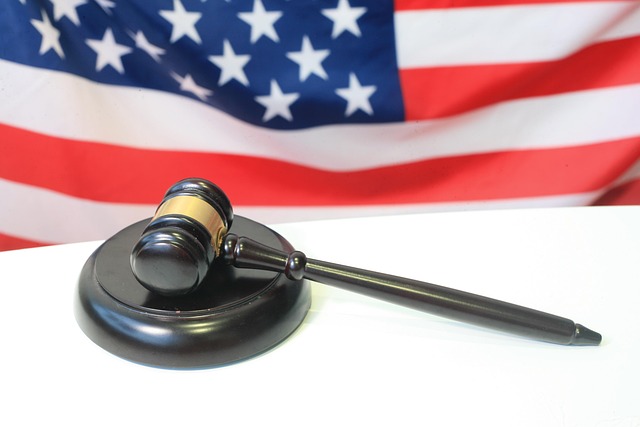Corporate crime investigations uncover illegal activities in businesses, with significant consequences. Understanding this process is crucial for individuals pursuing a personal injury claim without legal help, as it informs their rights and potential outcomes. Skilled investigators use financial analysis, document review, and witness interviews to gather evidence against corporate negligence or white-collar crimes. Law enforcement plays a vital role, especially in complex cases, by navigating corporate structures and legal frameworks. Proactive steps like understanding laws, gathering evidence, and staying informed can enhance outcomes for those pursuing personal injury claims without a lawyer. Meticulous documentation of evidence is key, involving digital and physical sources, search warrants, and forensic analysis. Businesses should implement robust internal controls to prevent corporate crime, safeguarding against financial losses and reputational damage.
Corporate crime investigations are pivotal in upholding ethical business practices and safeguarding individuals from harm. This article delves into the intricacies of understanding corporate crimes, with a focus on personal injury claims. We explore the role of law enforcement in these cases and provide insights for navigating legal processes without legal representation. Additionally, we discuss evidence documentation strategies, prevention methods, and the wide-ranging impacts on businesses and individuals. Key terms, such as ‘personal injury claim without a lawyer’, highlight practical considerations for those involved.
- Understanding Corporate Crime Investigations
- The Role of Law Enforcement in Personal Injury Claims
- Navigating Legal Process Without Legal Representation
- Strategies for Documenting Evidence in Investigations
- Prevention & Impact: Effects on Businesses & Individuals
Understanding Corporate Crime Investigations

Corporate Crime Investigations delve into complex and sensitive matters where businesses or organizations engage in illegal activities. These investigations are crucial in uncovering fraud, embezzlement, and other misconduct that can have severe economic and social implications. Understanding this process is essential for individuals who may one day face a personal injury claim without a lawyer, as it can impact their rights and the outcome of such claims.
Across the country, skilled investigators employ various techniques to gather evidence, including financial analysis, document review, and witness interviews. The ultimate goal is to present a clear picture of the misconduct to relevant authorities or even to a jury in court, ensuring justice for victims and holding culpable parties accountable. This meticulous process requires expertise in both corporate structures and legal frameworks, which can make all the difference in achieving favorable outcomes for clients.
The Role of Law Enforcement in Personal Injury Claims

When it comes to personal injury claims, law enforcement plays a pivotal role in ensuring justice is served. Their involvement is crucial, especially in cases where the injury was caused by corporate negligence or white-collar crimes. In many situations, victims may consider pursuing a personal injury claim without legal representation, but having law enforcement on board can significantly enhance the outcome.
Law enforcement agencies possess an unprecedented track record in investigating and solving complex cases, including corporate fraud and economic crimes. They are well-equipped to navigate the intricate web of financial transactions, corporate structures, and regulatory compliance that often accompany personal injury incidents linked to businesses. By utilizing their expertise during all stages of the investigative and enforcement process, they can help uncover evidence, interview witnesses, and build a strong case for victims seeking compensation without a lawyer.
Navigating Legal Process Without Legal Representation

Navigating the legal process for a personal injury claim without legal representation can be daunting, especially in complex scenarios involving corporate crime investigations. While many high-stakes cases require the expertise of lawyers to protect the rights and interests of both corporate and individual clients, there are steps individuals can take to avoid indictment or mitigate damages.
Understanding the legal landscape is crucial. Researching relevant laws and regulations specific to personal injury claims in your jurisdiction is a good starting point. Additionally, gathering evidence, documenting incidents, and keeping detailed records can significantly aid in presenting a compelling case. In high-stakes cases where corporate misconduct is involved, staying informed about the company’s actions and any ongoing investigations can also work in your favor, potentially preventing indictment or reducing liability.
Strategies for Documenting Evidence in Investigations

In corporate crime investigations, meticulous documentation of evidence is paramount to ensure a robust and successful outcome, especially when pursuing a Personal Injury Claim Without a Lawyer. Investigators must employ comprehensive strategies to gather, preserve, and organize digital and physical evidence related to white collar and economic crimes. This includes obtaining search warrants for electronic devices, servers, and databases, which often contain critical data that can expose fraudulent activities or economic crimes within respective businesses.
To avoid indictment and potential legal repercussions, investigators must adhere to strict protocols for documenting evidence. This involves creating a detailed chain of custody for all collected items, ensuring proper labeling, storage, and tracking. Additionally, forensic analysis techniques are employed to extract and analyze data without compromising its integrity. These strategies not only strengthen the investigative process but also serve as robust proof in court, facilitating the prosecution of individuals and entities involved in corporate crimes.
Prevention & Impact: Effects on Businesses & Individuals

Corporate crime investigations play a pivotal role in preventing and mitigating the impact of illegal activities within organizations. Businesses must be proactive in establishing robust internal controls, ethical guidelines, and compliance programs to deter potential wrongdoings. These measures involve regular audits, transparent reporting structures, and employee training on ethical practices, ensuring that corporate governance remains intact.
The effects of corporate crime can be profound, impacting not only the business but also its stakeholders and employees. For individuals involved, it may lead to significant personal injury claims without a lawyer, especially in cases of fraud or negligence. Across the country, general criminal defense strategies focus on avoiding indictment by leveraging loopholes and presenting exculpatory evidence. Effective prevention mechanisms not only safeguard businesses from financial losses but also protect individuals from legal repercussions and reputational damage.
Corporate crime investigations are multifaceted, requiring a deep understanding of legal processes and strategic evidence documentation. From navigating the legal system, especially in personal injury claims without legal representation, to preventing and mitigating damage, these investigations hold immense importance for businesses and individuals alike. By employing effective strategies, organizations can ensure their integrity and protect against potential harm, fostering a safer and more accountable corporate environment.






